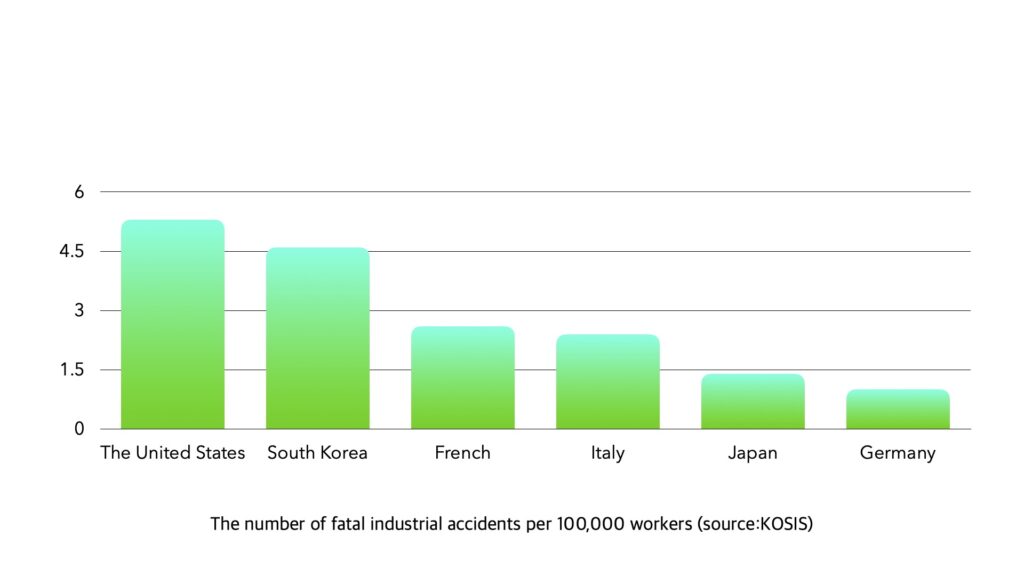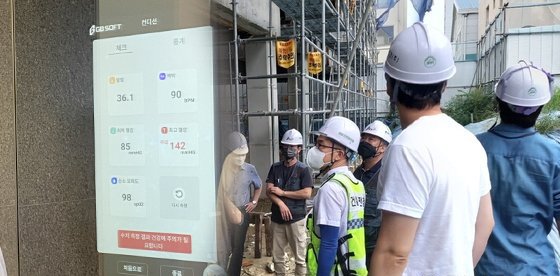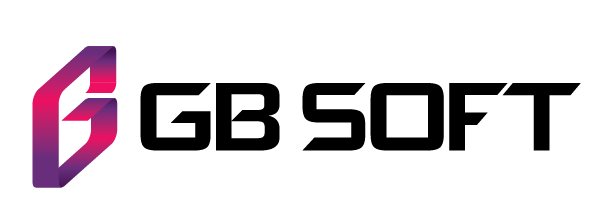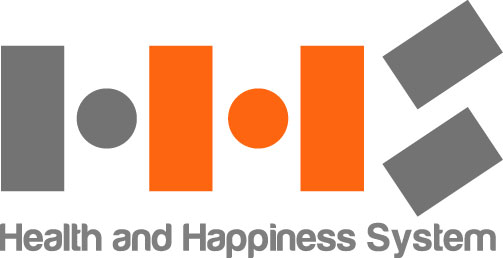
Korea has not been stigmatized as a country with many industrial accidents along with long working hours. Statistics collected from 1964 to 2012 since the introduction of industrial accident insurance show that the incidence of industrial accidents has steadily decreased, but the number of industrial accident deaths has not decreased. According to the statistics, the gap between the incidence of industrial accidents and deaths per 10,000 people significantly fluctuates. This gap was particularly noticeable in the 1990s. In 2012 alone, the number of workers who died in accidents while working reached 2,165. Accordingly, the Korean government announced the enforcement decree as follows.

It is a bill that strengthens criminal punishment for employers in the event of serious accidents such as death accidents in companies, and passed the plenary session of the National Assembly on January 8, 2021 in Korea. The Severe Disaster Business Punishment Act stipulates the level of punishment, such as imposing not only risk prevention obligations but also criminal penalties on employers and management managers when they violate their obligations and lead to serious accidents. While the current Occupational Safety and Health Act punishes corporations only if they violate safety and health regulations, there is a difference in priority in that business owners are also held legally responsible separately from corporations.
Meanwhile, legislation has been discussed as a petition filed by Kim Mi-sook, the mother of Kim Yong-kyun, a non-regular worker who died while working at a Taean thermal power plant, under the title of “Petition for the enactment of the Corporate Punishment Act for Safe Workplaces and Society” on August 26, 2020.
First, disasters are divided into serious industrial accidents and civil disasters. The former means one or more deaths or two or more injuries due to the same accident, and the latter means one or more deaths or 10 or more injuries due to the same accident. The scope of the management manager subject to the legislation was defined as the CEO or the director. According to this law, business operators must establish manpower and budget necessary for disaster prevention and measures to prevent disaster. In addition, it is obligated to take measures to fulfill its obligations under safety and health laws and implement corrective measures ordered by central administrative agencies and local governments, such as improvement and correction. If more than one person dies due to failure to fulfill these obligations, the CEO or manager will be sentenced to up to one year in prison or fined up to 1 billion won. Jail and fines can be imposed simultaneously. If two or more injured people need treatment for more than six months or three or more people with diseases prescribed by Presidential Decree within one year, they will also be punished by imprisonment for up to seven years or a fine of up to KRW 100 million won. Corporations will be fined up to 5 billion won when more than one person dies and up to 1 billion won when two or more injured people need treatment for more than six months. The compensation for damages of a corporation is up to five times or less of the amount of damage. However, it stipulated that a fine shall not be imposed if the company fails to pay considerable attention and supervise the work in order to prevent violations.
Workplaces with less than five employees are exempt from punishment, and the enforcement of this law takes effect one year after promulgation. Businesses with less than 50 employees will be suspended from applying the law for two years after the promulgation, and will be applied from 2024 with a total period of three years. Regarding the Severe Disaster Corporate Punishment Act, the management community argues that corporate activities will shrink by making companies take excessive responsibility, and critics say that it is difficult for companies to prepare for the enforcement of the law due to ambiguous provisions. On the other hand, the labor community protested, saying that the legislative purpose retreated as the grace period was prepared and the level of punishment was lowered.
Prior to this enforcement decree, GB SOFT was already applying solutions to large Korean companies and many workers’ workplaces that combine video and artificial intelligence. More than 16 construction sites in Daelim Construction and large-scale workers’ companies of Hyundai Motor’s Chinese plant and Lotte Engineering & Construction have also been tested and reviewed to introduce the company’s solution to Japanese global companies including Omron, Datascope, and Toyota.

▲ GB Soft Co., Ltd.
▲ CEO : Ki-bum Park
▲ http://gb-soft.co.kr
▲ gbsoft@gb-soft.co.kr
▲ +82-53-716-4884

▲ HHS Co., Ltd.
▲ CEO : Hyung-seob Han
▲ Brand : HHS, PINYFINY
▲ www.hhskorea.com
▲ overhs@naver.com

